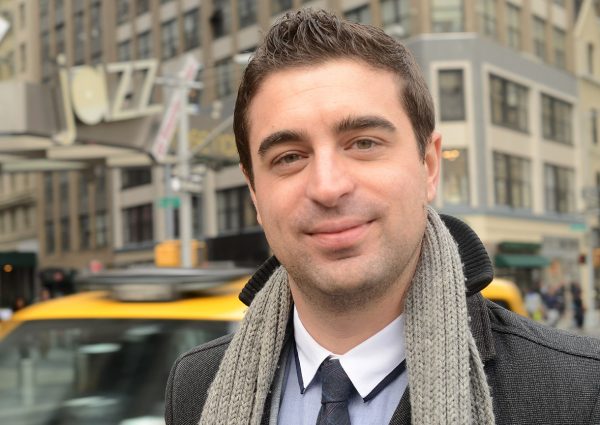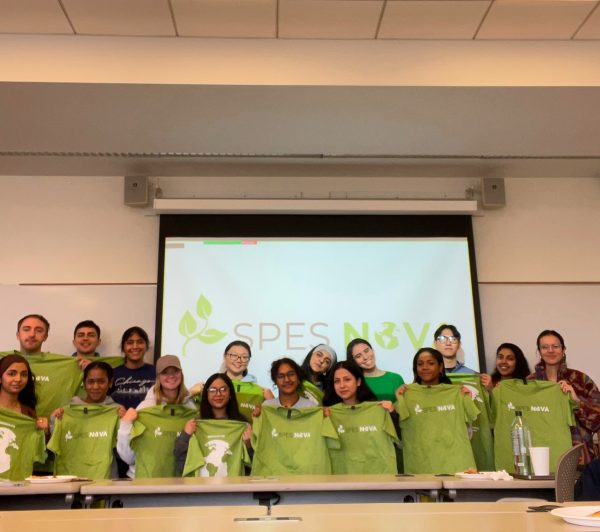FIRE Ranks Fordham in Top 10 of “Worst Colleges for Free Speech”
The Foundation for Individual Rights in Education (FIRE) included Fordham in its “10 Worst Colleges for Free Speech” for 2021, the third time Fordham has made the list since its conception in 2011. Fordham also made the top ten list in 2017 and 2018.
FIRE is a nonprofit organization with the mission “to defend and sustain the individual rights of students and faculty members at America’s colleges and universities,” according to its official website. It focuses on issues including free speech, due process, freedom of association and religious freedom on both public and private university campuses across the country.
Adam Goldstein, FCLC ’99, Senior Research Counsel to the President at FIRE, said in an interview with the Ram that the Individual Rights Defense Program at FIRE tracks reports of free speech violations at colleges and universities each year in order to provide support and sometimes legal advice or counsel to those involved. It also keeps track of these reports to compile its annual “Worst Colleges for Free Speech” list.
The creation of the list is subjective, explained Goldstein, but is mostly based on the frequency and severity of complaints against institutions. “Sometimes colleges come up more than one [during a year],” said Goldstein. “Sometimes, it’s a college that did something so preventable and easily fixable and has refused to so strongly to fix it that its name sort of rises to the top.”
The annual list serves as a way to “warn prospective students” of a given university that FIRE has determined it does not value freedom of expression, said Goldstein.
The organization cited two lawsuits associated with the university in the past year as the reason Fordham earned a spot on its list. “Fordham censors Students for Justice in Palestine with one hand and a pro-Second Amendment student with the other,” the official FIRE list stated. Other schools in the top ten list include St. John’s University, Syracuse University and New York University.
University officials declined to comment on Fordham’s placement in the worst colleges for free speech list.
The first case cited by FIRE is the legal battle between Fordham University and the Fordham chapter of Students for Justice in Palestine (SJP) at the Lincoln Center campus. The conflict began in late 2016, after Keith Eldridge, the dean of students at Lincoln Center, rejected the group’s application to become an officially-recognized club, according to an article from Inside Higher Ed.
National Students for Justice in Palestine is a network of pro-Palestinian clubs at colleges and universities across the country that seeks to “empower, unify and support student organizers as they push forward demands for Palestinian liberation & self-determination on their campuses,” according to the organization’s official website. Some of its chapters have been linked to accusations of anti-Semitism in the past, according to a profile on the organization by the Anti-Defamation League (ADL). However, the organization officially states that it opposes anti-Semitism.
When he declined to grant approval to the Fordham SJP chapters, Eldridge cited concerns that the group would be a polarizing presence on campus. “While students are encouraged to promote diverse political points of view, and we encourage conversation and debate on all topics, I cannot support an organization whose sole purpose is advocating political goals of a specific group, and against a specific country, when these goals clearly conflict with and run contrary to the mission and values of the University,” wrote Eldridge in 2016, according to official court documents.
The SJP chapter at Fordham sued the university in 2017 for formal recognition, and in 2019, a Manhattan judge ordered Fordham to recognize the club officially. Justice Nancy M. Bannon cited Fordham’s mission statement in her decision and argued that “the consideration and discussion of differing views is actually part of Fordham’s mission, regardless of whether that consideration and discussion might discomfit some and polarize others.”
The university’s mission statement states that it “guarantees the freedom of inquiry required by rigorous thinking and the quest for truth.”
The university appealed this decision, and in late Dec. 2020, a New York State appellate court sided with Fordham and overturned the previous ruling. The court argued that one of the petitioners lacked standing and made clear that it believed the university followed proper procedures when it denied club status to SJP. The legal representation for SJP indicated they would seek further review of the decision by a higher court, according to Inside Higher Ed.
The second case cited by FIRE is the lawsuit brought against the university by Austin Tong, GSB ’21. Tong sued the university in protest of its decision to place him under disciplinary probation regarding two controversial Instagram posts Tong published in June of last year, according to the New York Post. The probation included a ban on participating in extracurriculars or holding student office and required Tong to complete the academic year online and request permission before entering campus.
Manhattan Supreme Court Justice Carol Edmead dismissed Tong’s case and found that “the timing, content and context of Tong’s Instagram posts justify the two foregoing inferences that Dean Eldredge drew about Tong’s intent to harass and threaten his fellow students via his Instagram posts because of their opposing views regarding the BLM movement,” according to the New York Post.
In a letter sent to Rev. Joseph M. McShane, S.J., president of the university on July 17, 2020, FIRE urged the university to reverse its disciplinary actions against Tong. “Tong’s posts are plainly protected by any reasonable conception of freedom of expression, a right Fordham has publicly committed to uphold for its students,” wrote Lindsie Rank, the program officer for the Individual Rights Defense Program at FIRE.
Goldstein said that FIRE usually collects roughly one thousand reports of rights violations at colleges and universities each year but that it collected over 1,500 reports in 2020. He said that staff at FIRE had assumed the pandemic and the mass movement to online learning in colleges would lead to a decrease in controversies related to freedom of expression.
“What we hadn’t really anticipated was that people were going to take the same sensibilities they had for in-person education and apply them to online education,” said Goldstein. “The censorship did not decrease because people were not physically together.”
Goldstein also expressed concern over colleges and universities attempting to regulate student expression on social media platforms, like in the Austin Tong case. “I think there’s a lot of well-meaning institutions that are trying to stop people from feeling excluded or stop people from feeling bullied,” he said. “The problem is that it’s not easy to tell…what’s a joke and what isn’t and what’s meant to be hurtful or what isn’t.”
Goldstein acknowledged that while Fordham does have discretion as a private institution when it comes to freedom of speech, he still feels that the university has made a commitment to students to protect their freedom of expression. As a Fordham alumnus, Goldstein said he hopes “to never see Fordham on this list again.”

Abbey Delk is a junior from Wheeling, West Virginia, double majoring in English and journalism and minoring in film & television. Her career at the...











































































































































































































